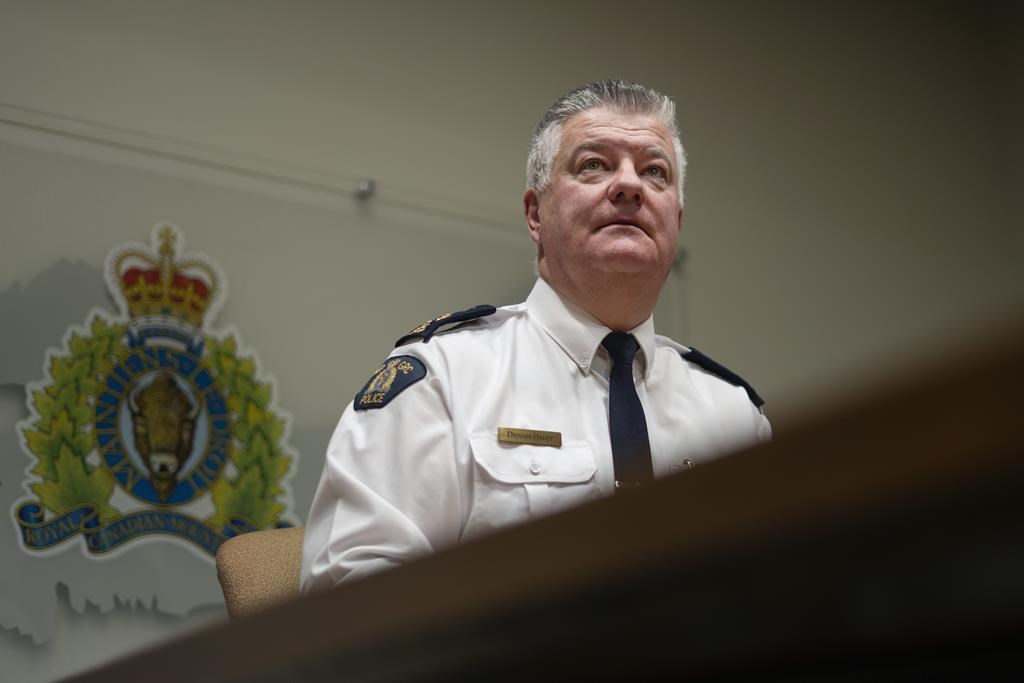The Nova Scotia RCMP plans to formally apologize for its historical use of street checks, more than two years after the force said it was not planning to do so, and more than four after a study found the practice unfairly targeted young Black men.

The RCMP said in a release that it plans to apologize “to African Nova Scotians and all people of African descent for the harm caused by the historical use of street checks and for other interactions that’ve had a negative impact on the community.”
In order to “inform an apology,” it said the RCMP will be holding 14 community consultation sessions across the province, the first of which took place Monday night in Gibson Woods.
“I know this apology is long overdue. And I acknowledge a lot of work needs to be done to start to rebuild the fractured relationship with the community,” said assistant commissioner Dennis Daley, commanding officer of the Nova Scotia RCMP, in the release.
“That’s why it’s especially important we hear from those who will be affected by the apology; we need to get the apology right and pursue systemic change.”
Consultations are expected to wrap up in November and the apology itself is expected to come in 2024.
Street checks, which are now banned in Nova Scotia, are defined as police randomly stopping citizens on the streets, recording personal information and storing it electronically — a practice sometimes referred to as “carding” elsewhere in Canada.
A provincially-commissioned study of street checks released by criminologist Scot Wortley in March 2019 condemned the practice by the Halifax Regional Police and the local RCMP — which polices the city’s suburbs — as targeting young Black men and creating a “disproportionate and negative” impact on African Nova Scotian communities.
Those findings led to a public apology before several hundred people by Halifax Police Chief Dan Kinsella on Nov. 29, 2019 for street checks and historical mistreatment of the Black community.
At the time, the RCMP attended the apology but did not participate. In September 2021, the force said it would not be providing a formal apology to Halifax’s Black communities for excessive street checks.

Tuesday’s release said the consultations were recommended by a steering committee and will be organized in African Nova Scotian communities. These sessions will also inform an action plan.
“To ensure the upcoming apology – and the actions that follow – are meaningful, I’ve established a steering committee to provide guidance and support,” Daley said. “The members’ expertise and leadership will help us reconcile with the Black community, with the hope of building back trust.”
The committee is made up of RCMP members and the following community leaders: Rev. Dr. Lennett Anderson, Elizabeth Cooke-Sumbu, Andrea Davis, Louise Delisle, Vanessa Fells, Alexander Fraser, Rose Fraser, Craig Gibson, Russell Grosse, Deacon Catherine Hartling and DeRico Symonds.
In a statement, Anderson, one of the committee members, noted that Nova Scotia is “steeped in a remarkable Black history that spans many centuries.”
“It’s through this lens that we’ve begun the process of collaboration with senior RCMP leadership to help build a meaningful response to the practice of street checks and the development of an action plan,” Anderson said.
“We as Community understand the contention surrounding the issue and play a dual role in this work.”
The RCMP said the action plan will be drafted after community consultations conclude.
— with files from The Canadian Press
- Posters promoting ‘Steal From Loblaws Day’ are circulating. How did we get here?
- Canadian food banks are on the brink: ‘This is not a sustainable situation’
- Solar eclipse eye damage: More than 160 cases reported in Ontario, Quebec
- Video shows Ontario police sharing Trudeau’s location with protester, investigation launched





Comments